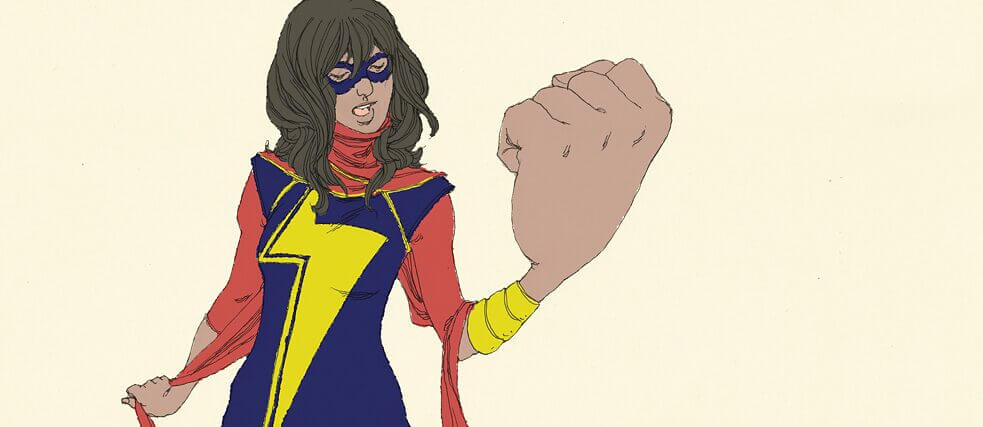Maryanne A. Rhett, Ph.D., professor of Middle Eastern and World History, has written an essay, “Generational Reflections in Ms. Marvel,” that was recently published in “Das Goethe,” a bi-annual insert in “Die Zeit,” the publication of the Goethe Institute. In the essay, Rhett explores generational relationships portrayed in the comic book character and series, “Ms. Marvel.” Ms. Marvel is a Pakistani-American super hero who protects the streets of Jersey City.
Rhett argues that when the title character, Kamala Khan, is not wearing a mask, she is symbolic of an increasingly globalized world and quite consciously as a model for cross-generational changes and movements. “As with almost all superheroes, Khan’s background is important for understanding their actions,” Rhett explains. “Only her biography is not limited to her own childhood. It goes back to the great grandparents who lived on the other side of the globe.”
She continues, “Even if not explicitly stated, the story of Khan’s maternal origin is closely related to major global events that shaped both the Islamic and non-Islamic worlds. The partition of India and the attacks of September 11, 2001 shortly after Muneeba and Yusuf emigrated to the U.S. link the family history of Khan with global historical turning points.”
Ultimately, Rhett concludes, “The story of ‘Ms. Marvel’ shows how much a generation is shaped by the previous ones…Kamala Khan’s life, origins and experiences are also a reflection of today’s generation. First generation immigrant children find their own experiences in Khan’s story. Muslims – much too often denigrated in popular culture – find characters here who remain true to themselves and stand by their diverse experiences.”
The German translation of Rhett’s essay, with a modified title, is available online through “Das Goethe.”

